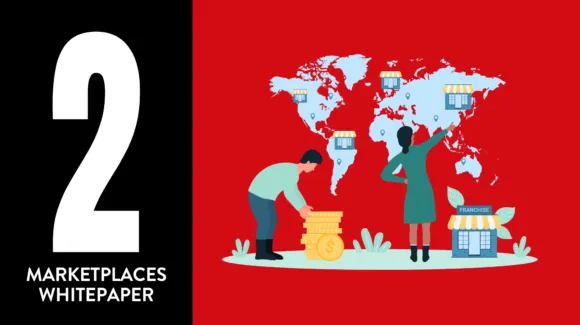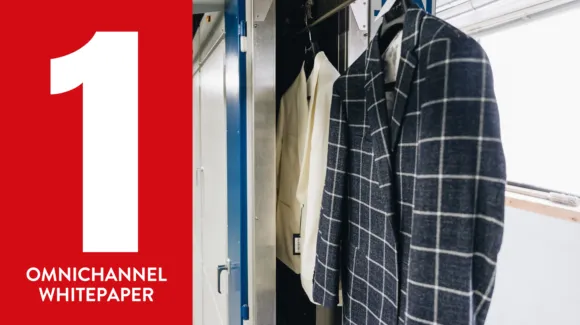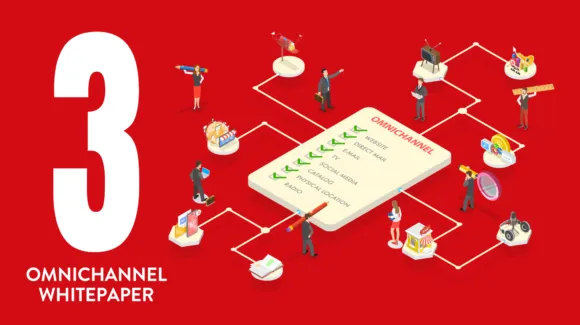Preparing for major sales events can be rather complex for fashion and lifestyle brands – especially for those that operate an omnichannel model that includes both physical and online stores. Even though these peak sales periods often result in surges in demand and increased pressure on inventory and fulfilment operations, they are also key opportunities for brands to boost both their market visibility and sales.
Read on to discover how the right third-party logistics (3PL) provider can help you successfully steer your omnichannel brand through peak seasons while delivering an excellent customer experience.
Securing customer loyalty with a successful omnichannel model
An omnichannel fulfilment model will require more from you in terms of preparing your logistics organisation for peak seasons. However, the many benefits associated with the model make it well worth your effort. For example, research has shown that 67% of consumers use multiple channels to make purchases.1 It’s therefore vital for brands to provide excellent service to customers across all channels, resulting in high levels of customer satisfaction throughout peak periods.
As a consumer-centric model, omnichannel fulfilment can help your brand secure long-term customer loyalty. So, what is the key to omnichannel success as you prepare for each peak sales season? Let’s explore how transparent communication, accurate inventory management and data-driven optimisations can ensure smooth operations during peak periods.
Ensuring transparent communication with your 3PL
For brands working with 3PLs, clear communication is your not-so-secret weapon during peak seasons. The key? Start as early as possible. This may even mean discussing your Black Friday plans as early as August, or at least immediately after your summer sales period ends. Regardless, the sooner you align your promotional plans with your 3PL, the easier it will be for them to manage inventory across all your sales channels.
Communication is also key to successfully forecasting demand, but the process – and therefore your 3PL – must be flexible enough to easily adapt to change. Due dates, lead times and schedules can and will change, unexpected spikes are to be expected and, despite all your preparations, at some point you’re likely to be caught off guard by an issue that you couldn’t have anticipated or prevented.
Professional communication between stakeholders and all the teams within the companies involved helps to ensure a good understanding of the issue(s) involved. This is key to implementing the necessary adjustments and solutions. Regular, solution-oriented communication and coordination between your brand’s (operational) teams and your 3PL is therefore essential at every phase of a peak season. Without this, it will be challenging to navigate the many problems that can arise, including delayed inbound shipments, reallocating inventory between channels, processing returns without affecting sales order output or dealing with key personnel falling ill.
Planning your production and supply chain logistics
Once your organisation and 3PL have a thorough understanding of your forecasts and are well aware of the sales strategies and promotions you’re working on, it’s time for phase two: production planning. This is critical for any company looking to succeed during peak periods, but even more so for omnichannel brands.
First, to successfully fulfil orders across all of your company’s sales channels, you need to be able to accurately forecast inventory requirements – not just in terms of quantity or volume but also when the product will be in demand. Don’t forget: your and other teams will be focused on sales, sales and only sales during peak seasons, so getting additional inventory into stores or warehouses can very well result in delays and discussions. Make sure you get the goods in, on time. Failure to have the right amount of product available at the right time will result in lost sales, which will impact your company’s bottom line. Again, effective preparation can make or break your peak-season performance.
Optimising your operations with data analytics
With all the preparation completed and your inventory in order, it’s now time to execute on your plan. Implementing data analytics at this stage can be key to enhancing operational efficiency and driving measurable performance gains. For example, AI-powered solutions can transform warehouse operations by providing warehouse teams with intelligent picking lists designed to deliver optimised picking routes – reducing walking distances and increasing overall efficiency. By harnessing real-time data, your team can lay the foundations for more agile and responsive operations.
Putting lessons learned to best use
One of the best ways to prepare for future peak seasons is to learn from past ones. During Black Friday, for example, brands can fulfil more than 10 times their normal daily order volume, putting immense pressure on their logistics operations. However, analysing data on how much you sold through each channel in previous years can help you prepare your omnichannel logistics operations and ultimately deliver an even better customer experience. Your 3PL provider can also be a valuable source of insight, drawing on their experience to help you ensure an even stronger performance next time.
Collaborating with your 3PL to deliver for your customers
Thriving during peak sales periods requires more than just working closely with an experienced and specialised 3PL provider. For the best results, that same 3PL should also act as a true strategic partner, acting as an extension of your own operations and helping you navigate all the challenges that arise during the busiest moments of the year. In short, you need to be able to rely on their reliability and accountability at all times.
“At Bleckmann, successfully managing our partners’ peak periods may very well be the most essential aspect of our strategic service offering,” explains Erik Janssen Steenberg, Business Development Manager at Bleckmann. “Our teams operate in such a way that planning and preparing is a constant activity and not an annual short-term project in the weeks before Black Friday. We take the lead, where needed and where possible, to make sure that the peak seasons of all our partners are a resounding success.”
Indeed, high-quality and timely fulfilment can be critical to maintaining high customer satisfaction ratings. “We don’t take lightly the fact that none of your brand’s employees will probably have touched the product when we deliver it to the doorstep of your store, distributor or customer,” concludes Erik. “This means it’s our responsibility to uphold your high standards, and our role goes far beyond that of a ‘supplier’ – we’re dedicated to enabling and facilitating growth and continuous improvement within our partnerships.”
Want to find out how Bleckmann can help you kick your omnichannel logistics into high gear during peak periods? Contact us for a free consultation with one of our experts!
















